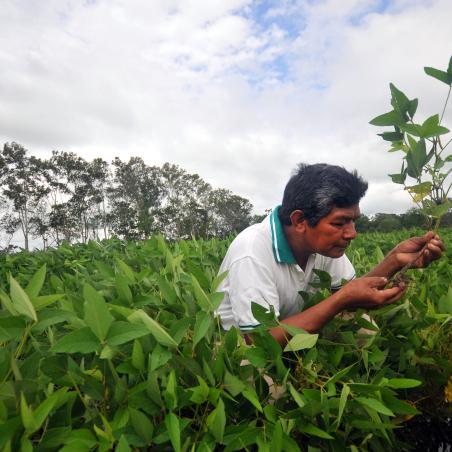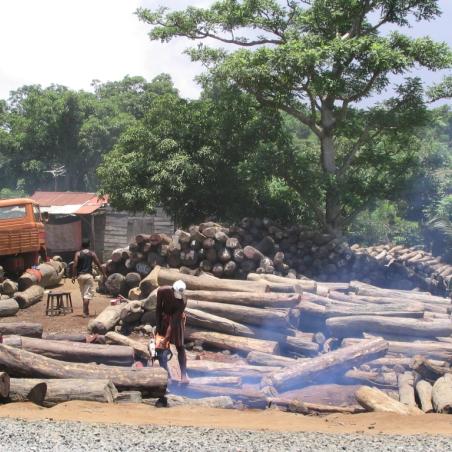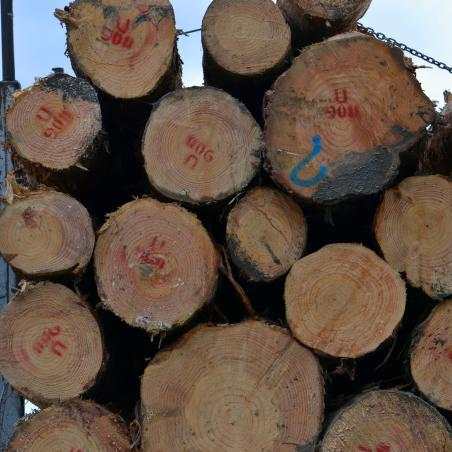News & Blogs
12/16/2020
China Can Save Forests While Strengthening Its Economic Resilience
Type:
Blog Post
A recent study by Chinese and international experts argues that China’s leaders are recognizing the importance of greening the country’s commodity value chains. As China reassesses the vulnerability and risks of its global value chains due to the COVID-19 pandemic and considers how to build back its economy with greater resilience and sustainability, the political moment is right to make this shift.
10/20/2020
501c3 Business Development Plan for World Forest ID Consortium
Type:
News
The overall objective of this contract is to assist the WFID Advisory Board in the establishment of a 501(c)(3) WFID entity, suggestions for the most appropriate business model (e.g. WFID staffing and governance structures) that will be needed to successfully scale WFID program activities through fundraising and partnership building.
11/06/2018
DNA Testing Can Save Trees from Illegal Logging – and You Can Help
Type:
Blog Post
By his own admission in a 2015 criminal plea agreement, Washington state sawmill owner Harold Clause Kupers suspected he had been buying logs illegally harvested from Gifford Pinchot National Forest. Besides his confession, DNA from the illegal timber—not from Kupers—implicated him in the crime.
04/17/2018
2 Ways for China to Play a Bigger Role in Protecting Global Forests
Type:
Blog Post
In 2018, China wrote the concepts of "ecological civilization" and "a community of shared future for mankind" into its Constitution. The new concepts signal China's prioritization of the environment in its policy agenda and willingness to engage cooperatively in global affairs.
03/14/2018
With US Out of TPP, So Are Measures to Curb Illegal Logging
Type:
Blog Post
President Trump may have withdrawn the United States from the Trans-Pacific Partnership (TPP), but the 11 remaining countries renamed and re-signed the trade agreement last week. The new pact comes with a few changes, one of which could fuel the illegal logging trade.
07/10/2017
2 Birds, 1 Stone: Fighting Illegal Logging and Wildlife Poaching with Technology
Type:
Blog Post
Wildlife trafficking is a growing epidemic. A market for exotic birds and rare seafood delicacies is exploding in Latin America. In Southeast Asia, the rising trade in pangolins – the most trafficked animal on Earth – has driven the small mammals to the brink of extinction, with hunters now pursuing African pangolins to satiate the Asian market.
06/02/2017
Event Summary: Development and Scaling of Innovative Technologies for Wood Identification
Type:
News
The Seattle Dialogue was convened to help harness wood identification (“wood ID”) technologies as part of efforts to combat illegal logging and associated trade. The meeting brought together some 60 participants, including many of the most renowned wood ID scientists in the United States (and several from overseas), with representatives of federal and state government agencies, key international institutions, NGOs, and illegal logging policy experts.
05/31/2017
Save The Date: Washington Forest Legality Week 2017
Type:
News
Building on the tradition of the Forest Legality Alliance semi-annual partners’ meeting that WRI hosted in past years, we are pleased to announce that WRI will host the first “Washington Forest Legality Week” October 17-19, with the generous support and cooperation of the U.S. Forest Service.
05/12/2017
New Asia-Pacific Trade Agreement Lacks Protections for One-Sixth of World’s Forests
Type:
Blog Post
In an era of rising anti-globalization and protectionism, countries in the Asia-Pacific region have turned their eyes to the China-backed Regional Comprehensive Economic Partnership (RCEP).
05/04/2017
Rainforest CSI: How We’re Catching Illegal Loggers with DNA, Machine Vision and Chemistry
Type:
Blog Post
The international timber trade is big business, worth some $226 billion in 2015. Unfortunately, a considerable proportion of this trade is illegal.









